Classical Athens was the world's first democracy. It was also the only police run by a city government in the Greek world, surrounded by powerful monarchies and oligarchies who were skeptical of their system. Despite its uniqueness, Athens became the richest and most powerful state in the Delian League. It reached its peak under Pericles after defeating the mighty Persian Empire. For Athenians, democracy was something to cherish and cherish, just as we would instinctively choose a democratic system over its authoritarian alternatives today, erroneous as democracy is. For it has the power of ideals; it strengthens the collective many instead of the few privileged.
Most people agree with this statement. Yet philosophers see things differently. Western political thought has long been skeptical of democracy. Over the last few centuries, philosophers such as Alexis de Tocqueville have questioned whether people are in chains during democracy. And whether democracy is essentially a tyranny of the majority, where voters lose the losers, separated by the 50% mark. The first philosopher to question the first democracy was Plato. Republic by Plato was the first book on political philosophy ever written. In this monumental work he considers human nature, the essence of justice; the pitfalls of democracy were also one of the many deep themes.
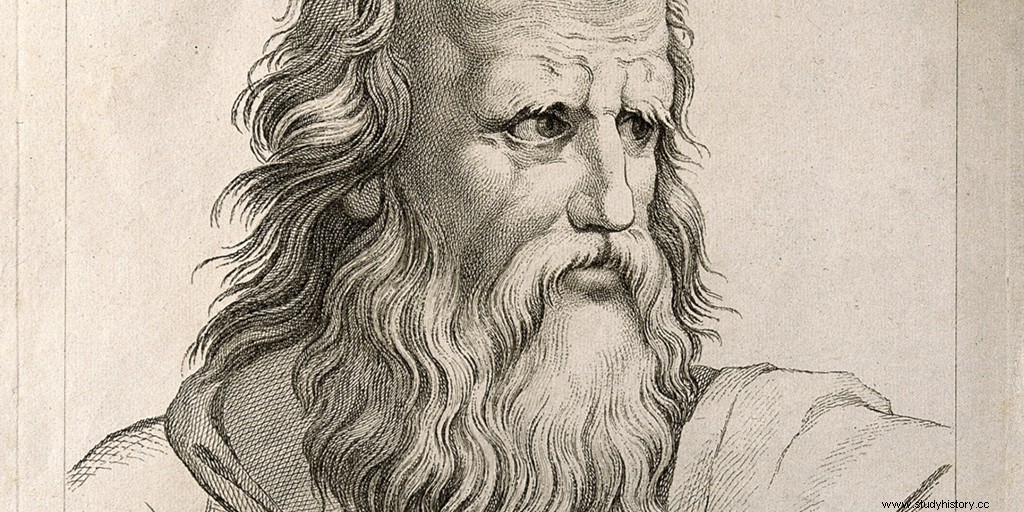
This article will first provide an overview of how Athenian democracy works and the context of Plato's writing. Then it will dive into Plato's critique of the demos. It seeks to reconstruct and clarify Plato's arguments and explain the implications of his analogies.
Athenian Democracy:A Brief Introduction
One cannot understand Plato's critique of democracy without an understanding of the Athenian system. Prime in Athens was around the end of the 5th and 4th centuries BC. Under this system, all male citizens (The Demos ) had extensive political rights, freedom of expression and the opportunity to participate directly in political affairs. It was a direct democracy, which means that the citizens actively served in the institutions that governed them. Therefore, they directly influenced and controlled the political process.
The most important institution was the Assembly, which is the old equivalent of the Westminster Parliament today. This body meets 2-3 times a month on Pnyx Hill, where there is room for 6,000 inhabitants. Citizens debate a wide range of issues, such as making laws, initiating political trials, prosecuting citizens and signing treaties. Any citizen can talk to the assembly and vote on decisions by simply holding up their hands. The majority won the day, and the decision was final.
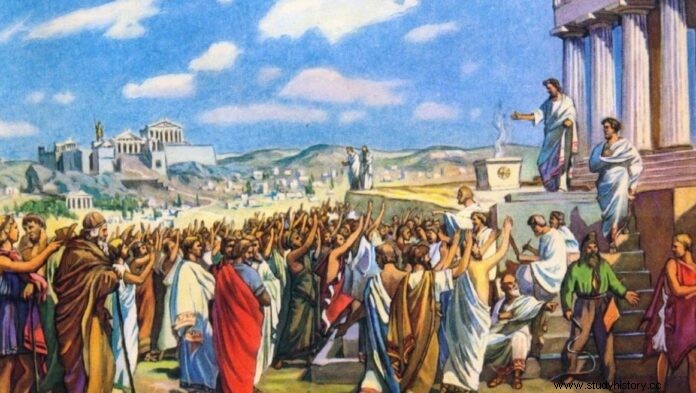
The Courts
The assembly is powerful, but the courts can offer some degree of control. 6,000 jury members make up the courts, led by a group of chief masters who are elected annually by drawing lots. The Athenians had a lottery system cleroterion to ensure the fairness of the selection. The courts can challenge or support the assembly's decision in cases such as criminal prosecution of citizens, such as expulsion, which expel ambitious and powerful citizens from the police.
Empowerment of the Masses and its Problems
Athens therefore has a system that empowers all citizens, fights for equal political participation and prevents the elite from abusing the poor. As Pericles puts it in the funeral speech for the Athenian dead in the Peloponnesian War:
"The Athenian constitution is called a democracy because it does not respect the interests of a minority, but of the whole people. When it comes to resolving private disputes, everyone is equal before the law; When it comes to putting one person ahead of another in positions of public responsibility, it does not mean membership in a particular class, but the actual ability of the man. No one, as long as he has it to serve the state, is kept in political confusion because of poverty. ”(Thucydides, The History of the Peloponnesian War , 2.37)
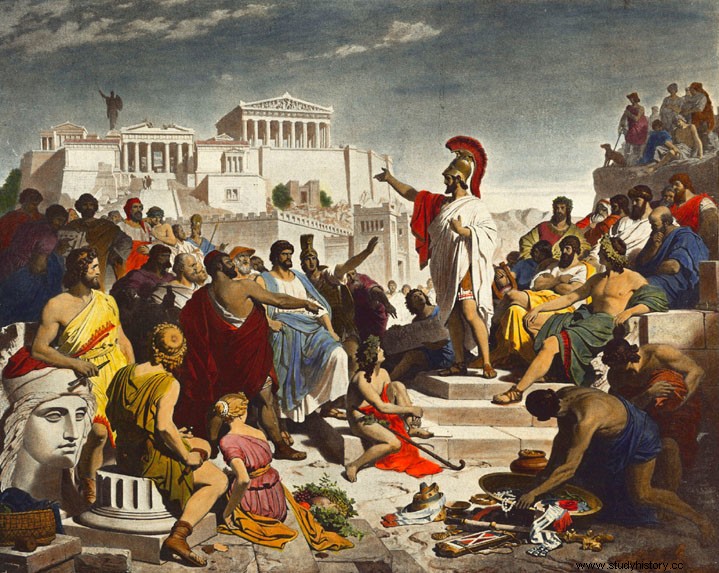
So what are you not going to like? One problem with Athens is that its citizens are often not experts in the areas in which they make political and legislative decisions. In the courts, professional judges with a deep moral understanding of the law did not exist. In the assembly, many citizens who contribute to foreign decisions lack diplomatic experience. Many were not well versed in economics, but they voted on the city's economic affairs. Although one should not suggest that diversity was incompetent because their decision was often favorable to Athens, as the city dominated the Delian League. But since the inhabitants lack knowledge, they inevitably make serious mistakes. Mistakes like trying an unjust man unfairly, listening to populists and following the policies proposed by sophists instead of just statesmen.
The Trial of Socrates
Socrates was the first Western philosopher and teacher of Plato. He was a dedicated Athenian citizen who served as Hoplite in the army. Socrates lived life democratically; he engaged in conversation with the masses, asking questions such as what is virtue? What is justice? And what is love and happiness? He spoke not only to other academics and eager young minds, but also to non-citizens and slaves. His engagement with the masses transcends class boundaries. In this way, Socrates encouraged the Athenians to think deeply about human existence.
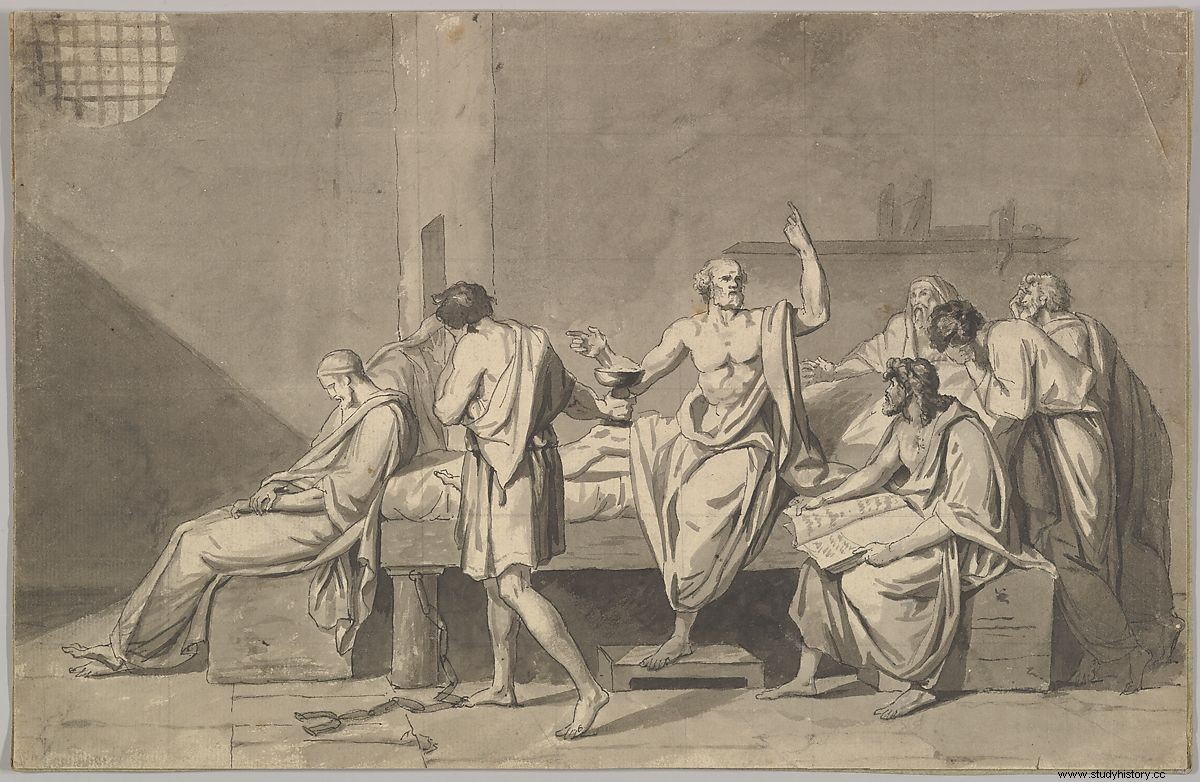
Socrates misunderstood
Yet the democracy he loved him sentenced to death in 399 BC. Jurors accused him of introducing new gods and destroying the youth. Although there are many reasons for such beliefs, many historians point to two important motivations that led to the trial. The first is to do with Critias, a student of Socrates and a member of the thirty tyrants who quickly overthrew Athenian democracy in 404 BC. for short 8 months. Nevertheless, the government of the tyrants resulted in the killing of 5% of the Athenian population and the confiscation of citizens' property. Furious, the Athenians associated Critias' brutality with the teachings of Socrates. Although he is a historian, William Morison convincingly points out that the two had a strained relationship, and Socrates eagerly rejected Critias' action. The masses acted on passion instead of reason.

The second reason, according to Plato, has to do with the famous playwright Aristophanes' negative portrayal of Socrates in his comedy - The Clouds . In this play, Aristophanes portrays Socrates as a swindler who has a reputation for traditional Greek religion, worships his own strange gods and runs a special school (The Thinking Institute) to teach ideas that are subversive of conventional morality. One might ask, is comedy not easy, and therefore people should not take the messages seriously?
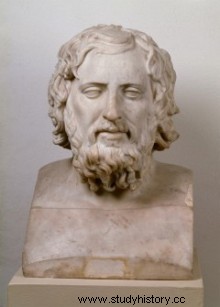
But the Greek context is different. The Greek word for a playwright is didáskalos , which means teacher. Playwrights have a teaching function. There are sections called parabasis in comedies where the play is paused, and the chorus leader addresses the audience. The actors leave the stage, and the choir leader assumes the playwright's perspective and talks to the audience. It is therefore possible that Athenians took Aristophanes' false portrayal of Socrates seriously. And Critias and Aristophanes contributed to people's misjudgments of Socrates.
Plato's context
Born around 429 BC, Plato lived through the crisis of Athenian democracy and witnessed many mistakes made by the bourgeois government. Athens lost the Peloponnesian War against Sparta, was ravaged by the thirty tyrants, and out of madness executed one of its greatest minds - Socrates. The democracy Plato lived in faced the greatest challenges she has ever faced and failed to solve these difficulties with effective domestic politics and wise diplomacy. Witnessing Athens' failure laid the groundwork for Plato's critique of democracy. The rest of the article explores Plato's argument against this system of government in the republic.
Republic of Plato
The freedom that leads to instability
Plato looks at the masses living in a democracy in a strong negative light. He describes his view of 'the democratic man', in other words, a typical Athenian citizen, in the following sections:
'He lives from day to day and indulges in the joy of the moment. One day there is wine, women and singing, the next water to drink and a strict diet. One day there is hard physical training, the next lethargy and careless lightness, and then a period of philosophical study. He often takes to politics and continues to jump to his feet and say or do what comes to him. Sometimes all his ambitions and efforts are military, sometimes they are all aimed at success in business. There is no order or limitation in his life, and he reckons that his way of life is pleasant, free and happy, and sticks to it through thick and thin. '(Plato, Republic , Penguin Classics, 2007, p. 298)
From this it is clear, Plato thinks democratic men lack perseverance and discipline. Clearly through their lifestyle, citizens in democracy change interests according to temperament. Although there is mobility for the good because sometimes desire is well meant, such as philosophical studies and physical exercise, others are lustful, such as wine and women.
Plato's emphasis in this section is that democratic men focus on 'the pleasure of the moment' and freedom. The 'moment' suggests short-sightedness, and being free meant that democratic men never pursue a particular craft with perseverance, and lack of consistent practice meant that they were practically good at nothing. Plato suggests that in order for a society to function at its highest, citizens should specialize in a craft, such as carpets, agriculture, etc. Then a police will consist of experts from different kingdoms. Democracy, on the contrary, is made up of amateurs.
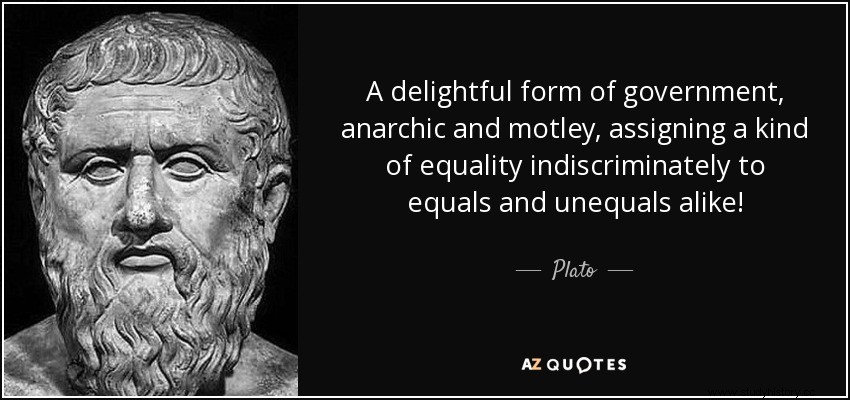
Sophistication and populism in democracies
As a consequence of instability, many citizens do not pursue the arduous study of science, logic, and philosophy, which would help them to perceive the truth. The citizens' government therefore lacks knowledge and wisdom. This makes them targets for populists, who often use sophistication as a method of persuasion. Populist politicians used the masses through deception for their gains. They expel those who are able to govern. Plato illustrates this via the analogy to the state ship in book 6.
Plato compares imaginative steering in a democracy to steering a ship. He compares the inhabitants to the short-term shipowner, sophists with incompetent sailors, philosophers with stargazers. Philosophers are those who perceive truth and spread wisdom. Stargazer knows seamanship, but unskilled sailors throw him aside, claim seamanship can not be learned and threaten to "cut to pieces the man" who opposes. They enchant the shipowner by "drinking and enjoying themselves and begging" until the shipowner accepts them.
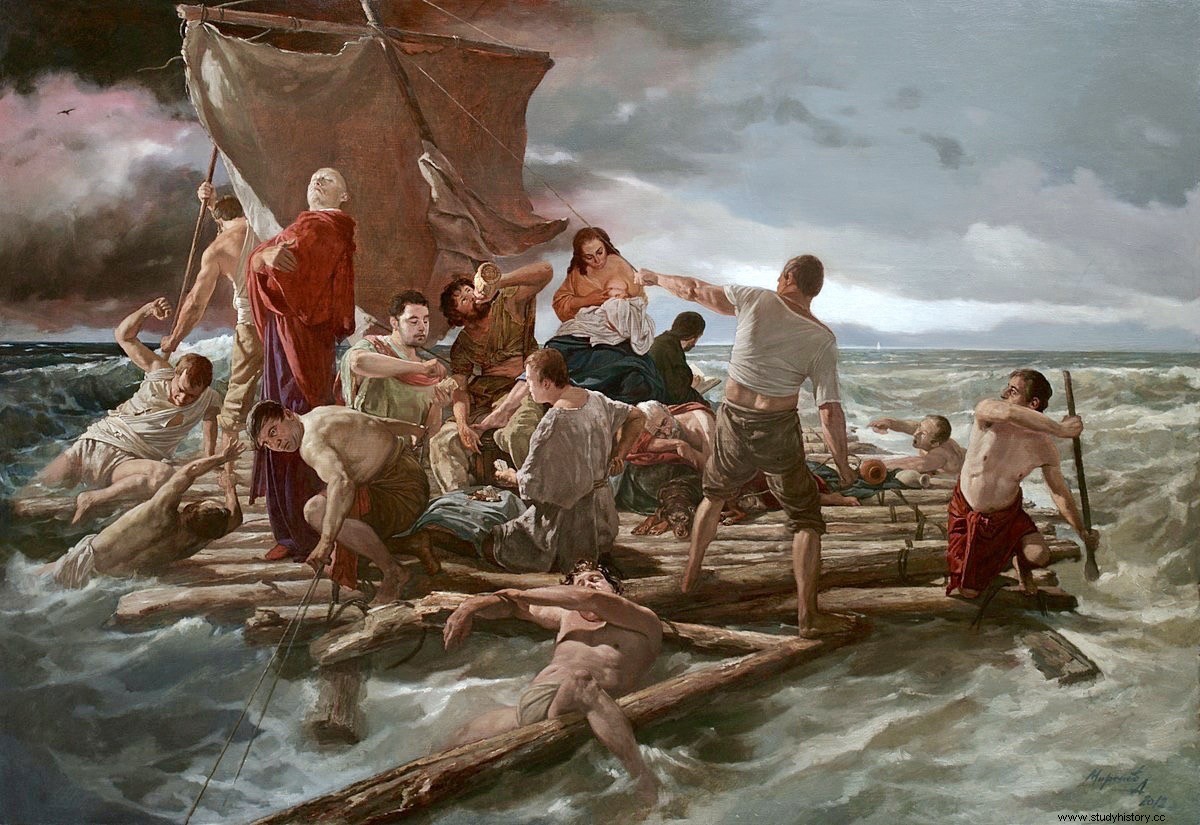
Plato insists that such an analogy is parallel to situations in a democracy. The masses lack reason and are creatures of desires, so that evil politicians lure their support by fulfilling their desires. Violence is encouraged, the phrase "cut to pieces" is powerful; it shows how unconstitutional populists are willing to go, to achieve their agenda. As a result, philosophers, like the fallen Socrates, paradoxically become the enemy of the state.
The Road to the Tyrant
An ignorant group of citizens and the elimination of only people like Socrates provides the ideal reason for demagoguery. Plato proposes in Book 8 of the Republic , in the end, the popular desire for freedom becomes so extreme that any restrictions on someone's freedom seem unjust. This limitation may be due to a difference in wealth and intellect. A demagogue would arise by presenting himself as a champion of the people against the class of the few wealthy people. The demagogue commits several acts to gain power:falsely accuses people, attacks his relatives, brings people to justice under false pretenses, murder and exile, and claims to cancel the debts of the poor to get their support.
The demagogue will become a tyrant. He eliminates the brave and wise people in the city since he perceives them as threats to his power. Self-preservation characterizes the tyrant. He ends up using private militias as guards, because he has the blood of the foremost citizens on hand and distrusts people. Tyrannical society is slaves:the masses live under the tyrant's iron hand, while the tyrant is a slave to his desire to dominate and his paranoia about betrayal and civil rebellion. While words like freedom and slavery, democracy and tyranny seem so far apart because they have polar opposite literal meanings, Plato insists that they are closely intertwined in political thought.
Relevance to modern history
To us, Plato's arguments may seem crazy. Surely freedom and oppression are the furthest apart? But modern history has proven otherwise. Although demagogues may not seize power exactly as Plato describes, tyrannies from democracies often arise. One only has to look at the descent of the Weimar Republic to Nazi Germany, Chile and the Pinochet coup in the 1970s, and Venezuela to realize how fragile democracy is. The example of Weimar Germany is particularly evocative.
Hitler's emergence is somewhat parallel to Plato's theoretical demagogue. Hitler and his National Socialists presented themselves as advocates of the lower middle class and working class during the Great Depression. At the same time, he appealed to ultra-conservatives for the promise of restoring German greatness by rejecting the Treaty of Versailles and Lebensraum's expansionist policies. He orchestrated Night of the Long Knives to eliminate his colleague and rival Ernst Roehm, and cemented the grip on the Nazis. Like Plato's tyrant, he has militias for personal protection and gains; first SA, then SS. Of course, there are contextual differences between Plato's tyrant and dictators in modern history. It is striking, however, that Plato, who wrote thousands of years before modernity, almost predicts how modern democracy can crumble.
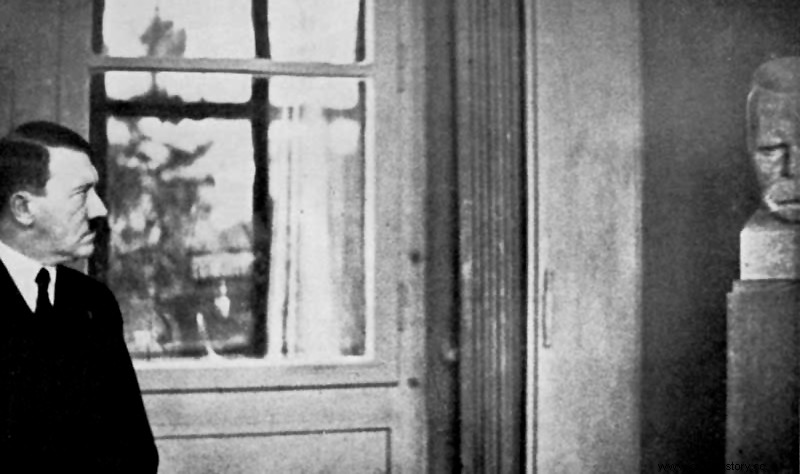
the conclusion
While we may disagree with Plato's one-sided aversion to democracy, modern readers can learn much from his critique of this system. His description of 'the democratic man', who takes the system for granted, is cooling but relevant. The precondition for the rise of demagogues is the ignorance of the masses.
Thus, a modern reader could interpret the Republic as a warning. Democratic citizens should pursue knowledge, critical thinking and logic. People should become rational people, instead of passionate creatures, so that slick populists would find it difficult to influence public opinions with honeyless rhetoric.
There is also a moral dimension to Plato's work. Evaluating democracy is a small aspect, the tip of the iceberg. In the opening parts of the Republic , Plato Discusses Ethical Issues. For example, in a world of appearance and facades, why should we remain good and righteous? Overall, the Republic is a thought-provoking masterpiece ahead of its time. By reading it, one can see the colorful interplay between the Athenian context and Plato's arguments, confront and evaluate disturbing ideas and draw links between past and present, theory and reality.
